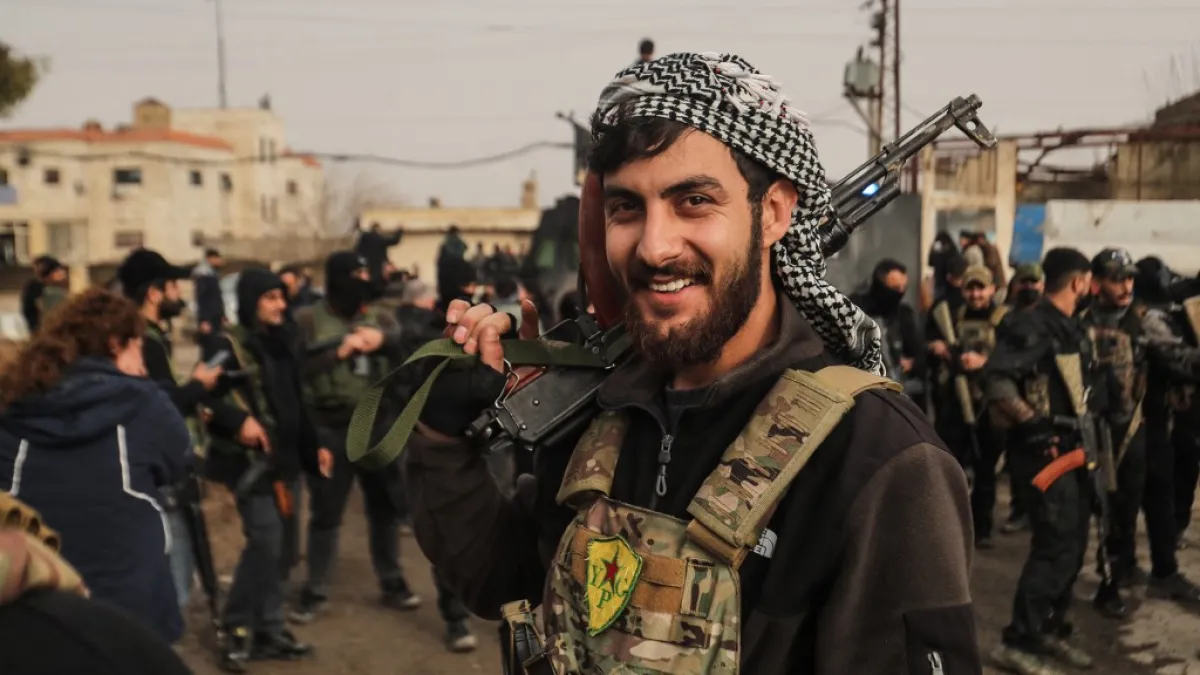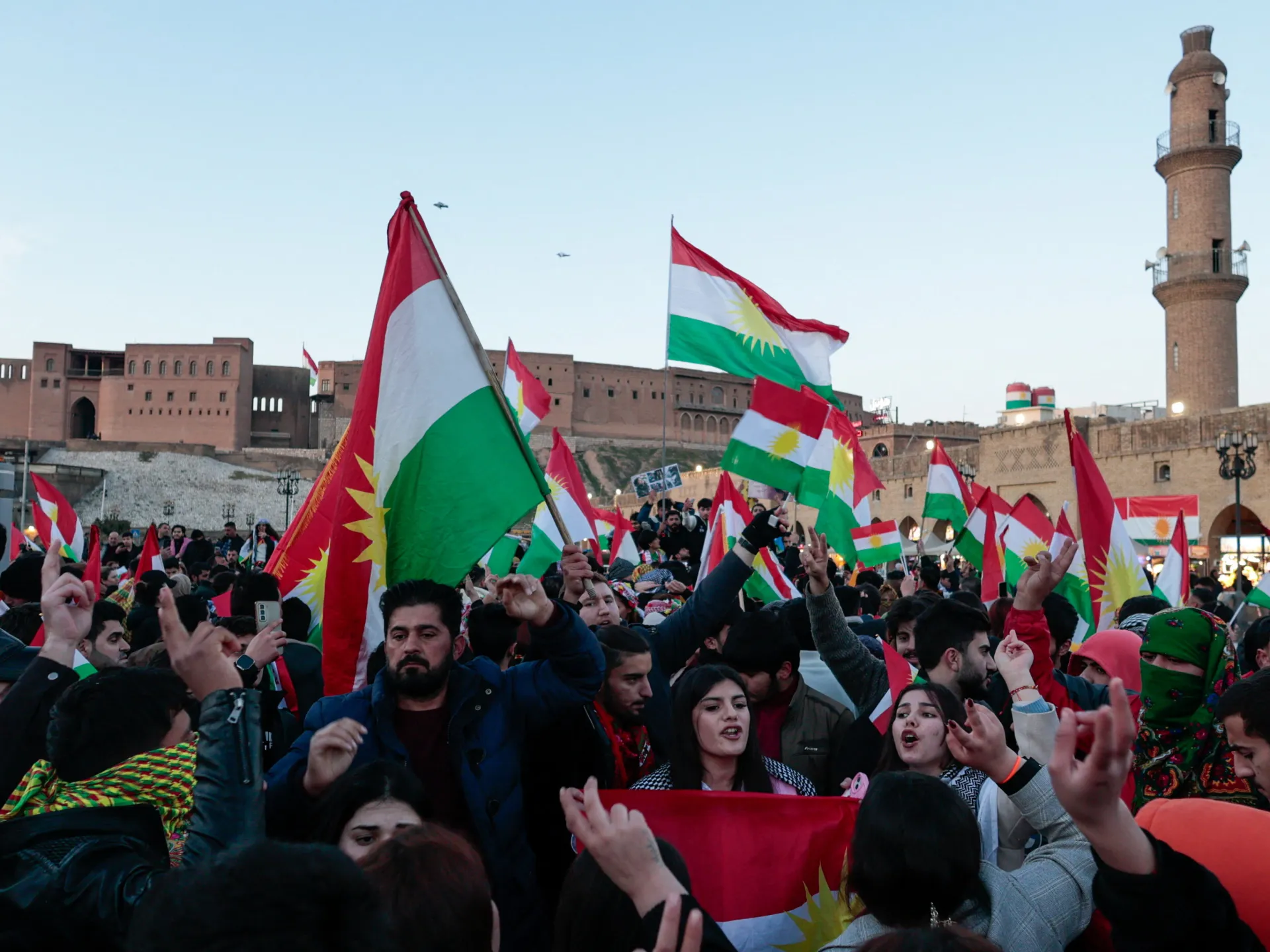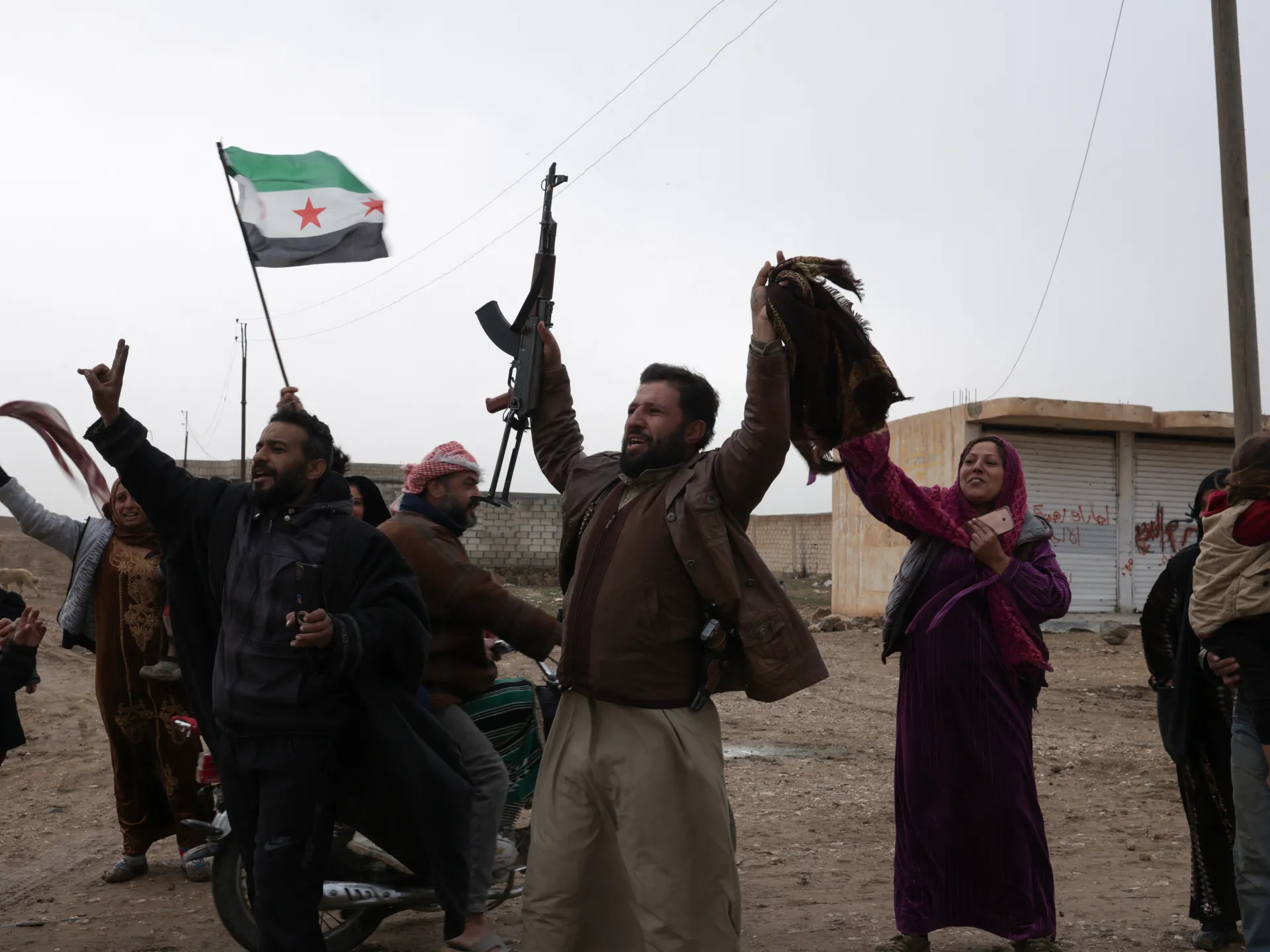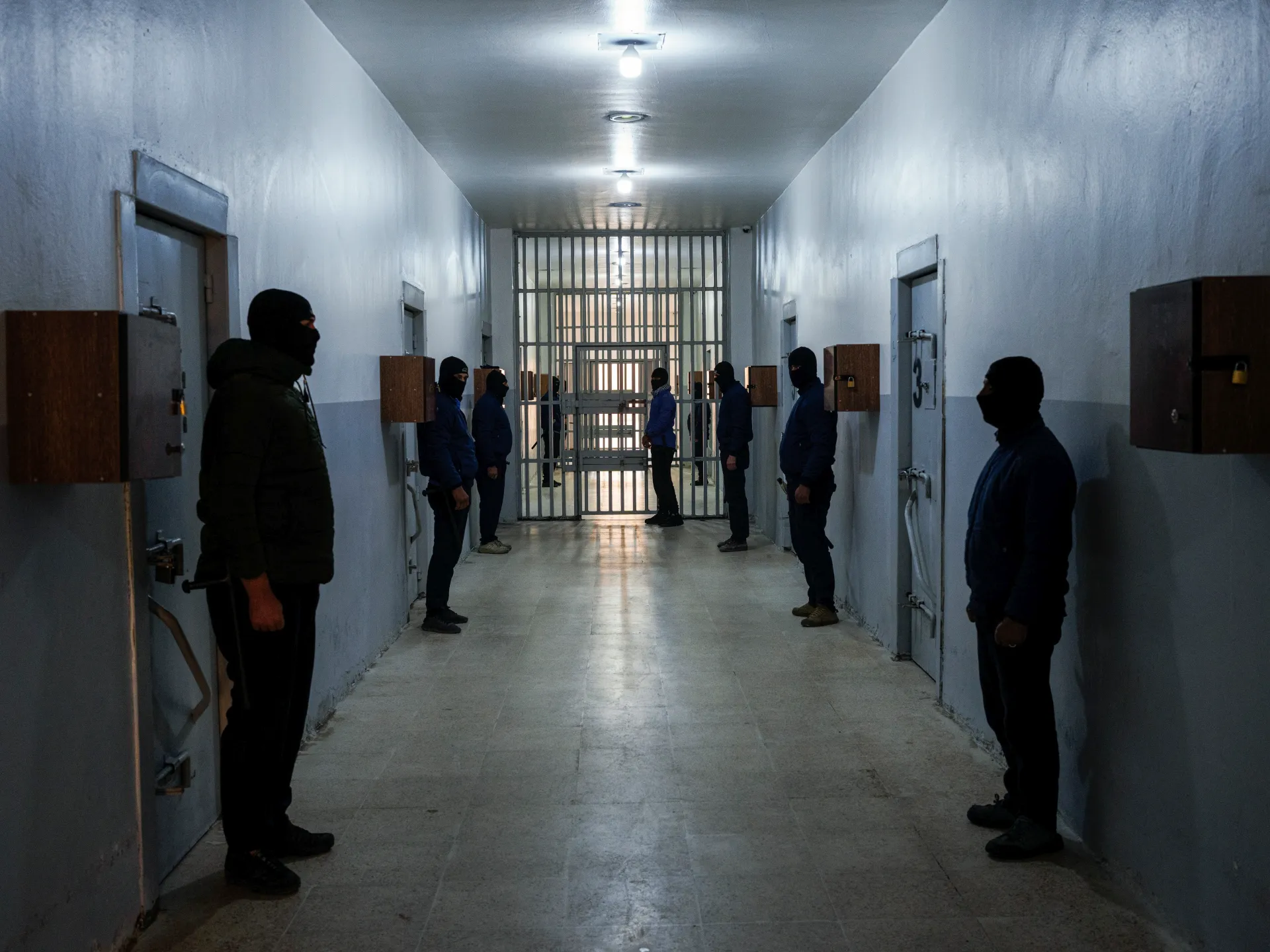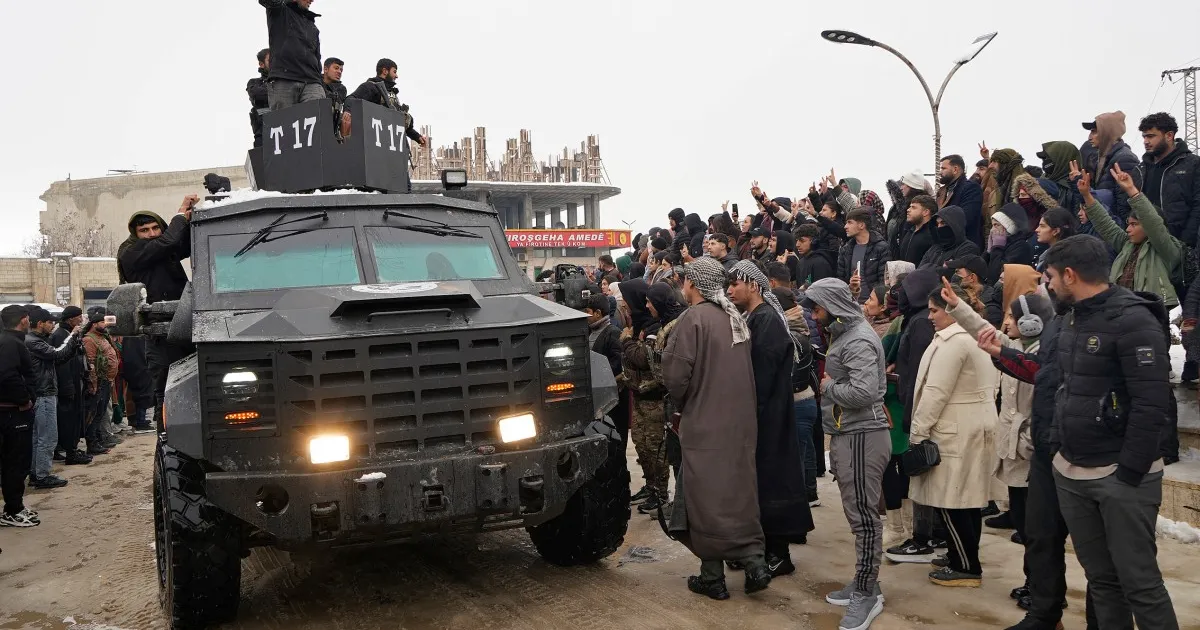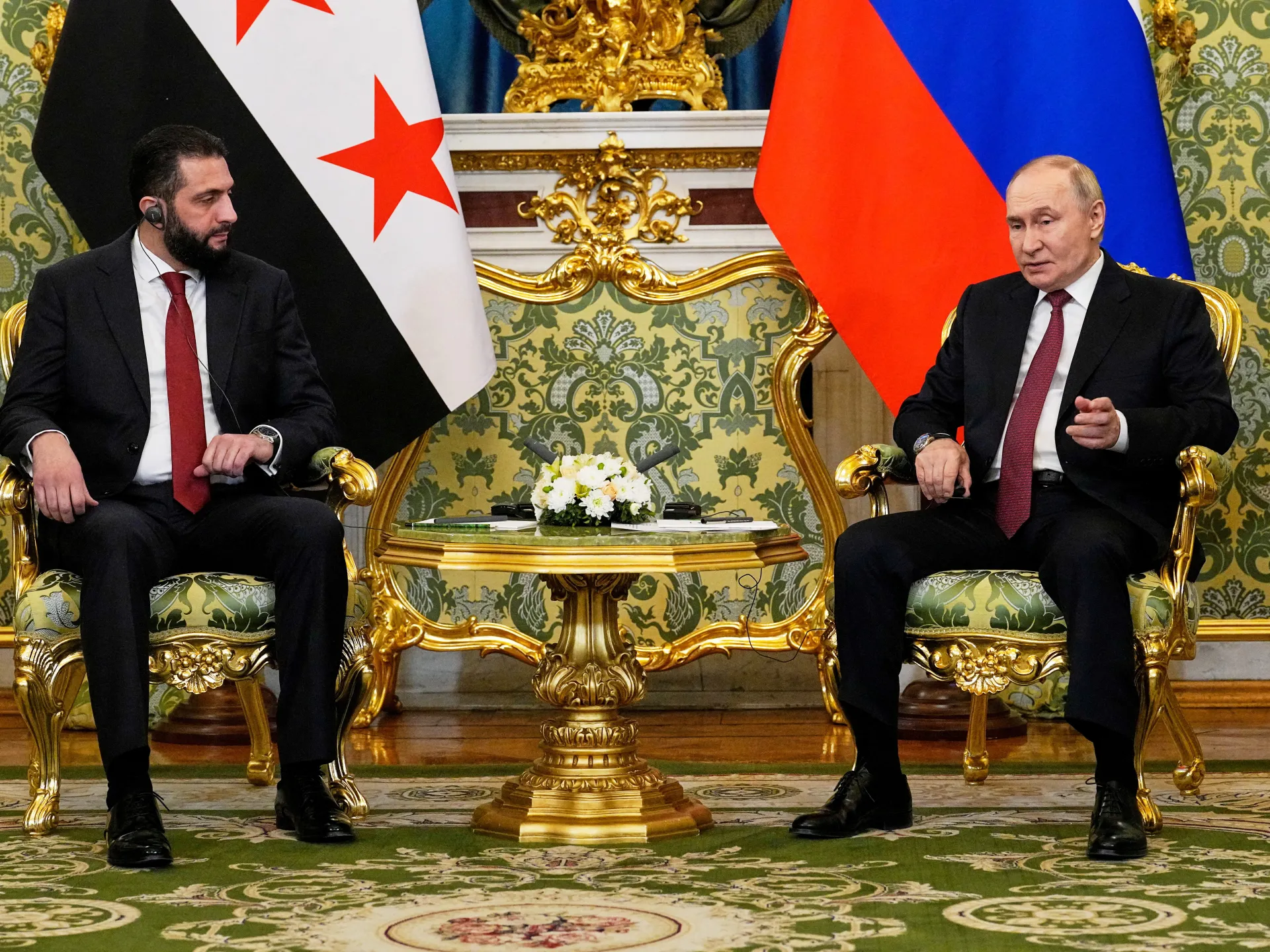US transfers ISIL detainees to Iraq as northeast Syria base draws down | Conflict News
Iraq launches investigations into ISIL detainees from Syria, with 7,000 expected to arrive in total.
United States forces have transported a third group of ISIL (ISIS) detainees from Ghwayran prison in Syria’s Hasakah province to Iraq by land, as activity around a US military base in the region points to possible operational changes, an Al Jazeera correspondent reports.
The transfer on Saturday forms part of a trilateral arrangement, which has emerged as part of a painstaking ceasefire after deadly clashes involving the Syrian government and the Syrian Democratic Forces (SDF), under which detainees held in northeastern Syria are being relocated to Iraqi custody. US forces are the third party to that agreement.
Recommended Stories
list of 3 itemsend of list
Earlier, US Central Command (CENTCOM) confirmed the start of a broader operation to move detainees from facilities across the region, with officials outlining a plan to transfer about 7,000 prisoners.
Iraq has launched investigations into ISIL detainees from Syria over atrocities committed against its citizens.
Security developments in northeastern Syria have accelerated in recent weeks in the wake of government forces sweeping across the north and SDF retreats.
On Saturday, SDF governor-designate Nour Eddien Ahmad met a Damascus delegation at the Hasakah government building before a Syrian national flag-raising ceremony.
The meeting carries political significance as the agreement between Damascus and the SDF allows the group to nominate the governor of Hasakah, with Ahmad expected to be formally appointed by the Syrian government.
The visiting delegation includes senior government security officials, underscoring Damascus’s expanding administrative control in the province. The raising of the Syrian national flag over the government building signals the reassertion of central government authority in Hasakah.
Syrian government forces entered the city of Qamishli earlier this week, one of the remaining urban strongholds of the Kurdish-led SDF, following a ceasefire agreement reached on Friday last week.
The accord ended weeks of confrontations and paved the way for the gradual integration of SDF fighters into Syrian state institutions, a step Washington described as an important move towards national reconciliation.
The agreement followed territorial losses suffered by the SDF earlier this year as government troops advanced across parts of eastern and northern Syria, reshaping control lines and prompting negotiations over future security arrangements.
Separately, an Al Jazeera correspondent on the ground reported that US personnel vacated most watchtowers surrounding a military installation in the al-Shaddadi area of Hasakah province, leaving only the western tower staffed.
Soldiers were also seen lowering the US flag from one tower, while equipment used to manage aircraft take-offs and landings at the base’s airstrip was no longer visible.
No combat aircraft were present at the facility, although a large cargo aircraft landed at the base, remained for several hours, and later departed.
The US established its formal military presence in Syria in October 2015, initially deploying about 50 special forces personnel in advisory roles as part of the international coalition fighting ISIL. Since then, troop levels have fluctuated.
Reports in mid-2025 indicated that roughly 500 US troops withdrew from the country, leaving an estimated 1,400 personnel, though precise figures remain unclear due to the classified nature of many deployments.
US forces continue to focus on countering ISIL remnants, supporting the Syrian government now, providing intelligence and logistical assistance, and securing oil and gas infrastructure in Hasakah and Deir Az Zor provinces.
The US carried out another round of “large-scale” attacks against ISIL in Syria in January, following an ambush that killed two US soldiers and a civilian interpreter in the city of Palmyra in December.
